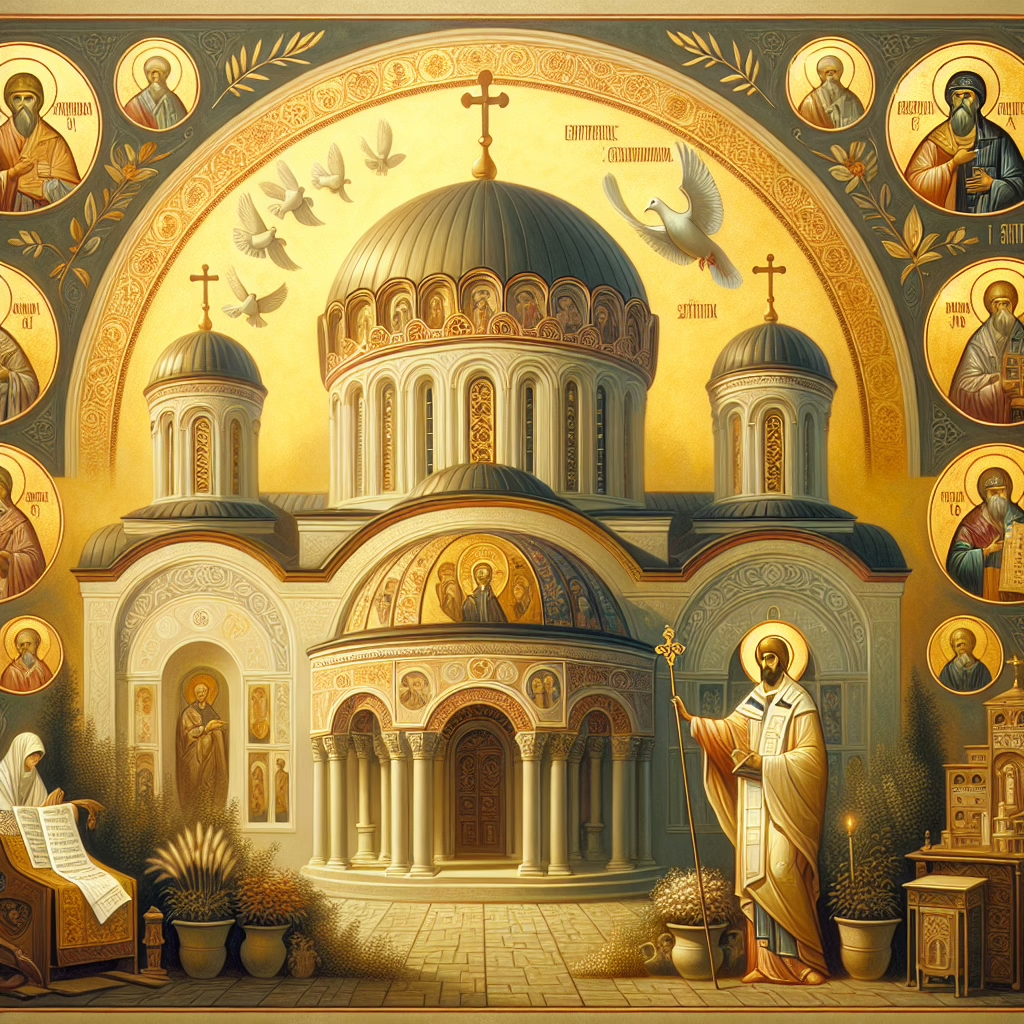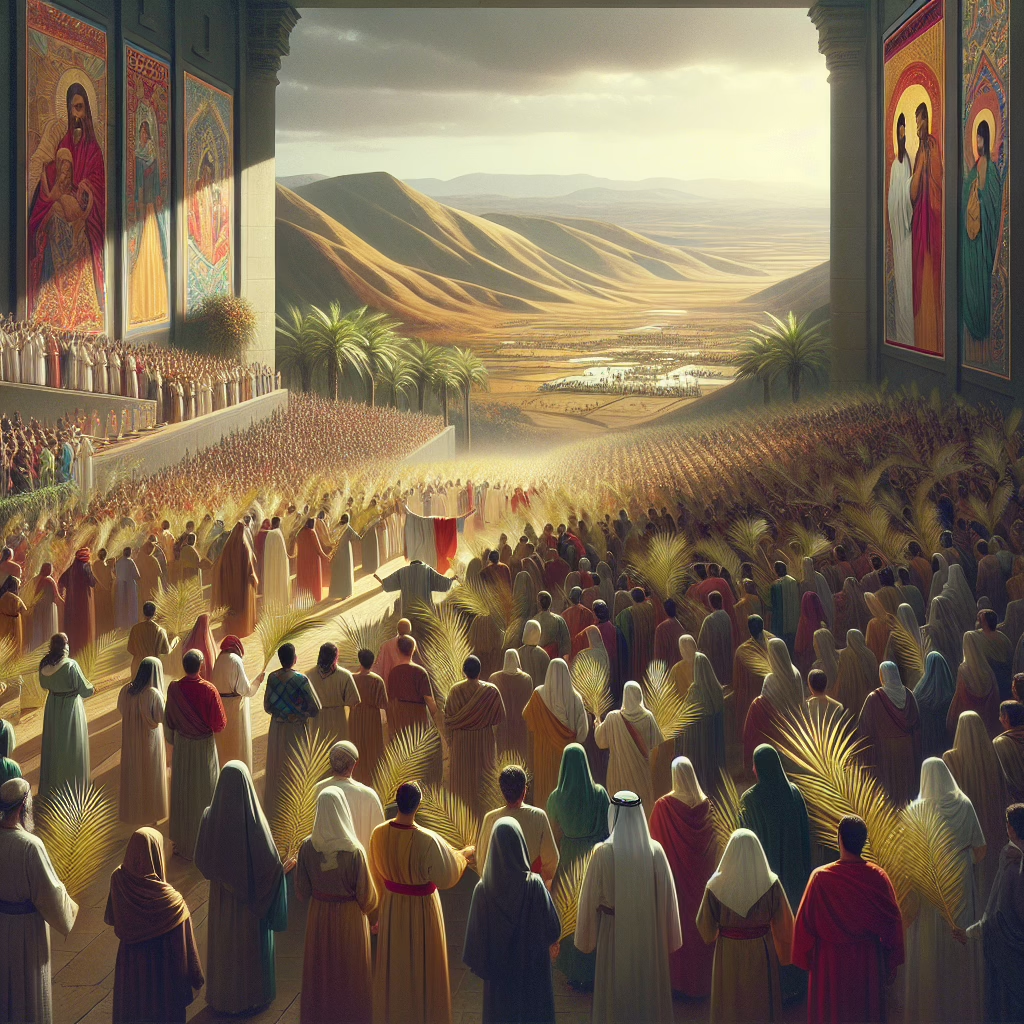St. Francis of Assisi: Embracing Poverty, Simplicity, and Love
Introduction: Unveiling the Life and Legacy of Saint Francis
In the picturesque hills of Umbria, Italy, a man emerged whose life would forever change the course of Christianity. St. Francis of Assisi, born in 1181, embarked on a transformative journey from a life of privilege to one of radical devotion to God. His story is not merely a tale of personal conversion but a powerful testament to the enduring impact of faith, simplicity, and love.
St. Francis of Assisi stands as a beacon of inspiration in Catholicism, revered for his unwavering commitment to poverty, his profound love for all creation, and his dedication to serving others. As we delve into the life of this remarkable saint, we will explore the key aspects that define his legacy: his divine calling, the founding of the Franciscan Order, his miraculous experiences, and the timeless teachings that continue to resonate with believers today.
1. Early Life and Divine Calling
1.1 Birth into Wealth and Privilege
Francis was born into a world of affluence and opportunity in Assisi, Italy. As the son of a wealthy cloth merchant, Pietro Bernardone, young Francis enjoyed a life of luxury and social prestige. His early years were marked by revelry and dreams of knightly glory, far removed from the path of sainthood he would later embrace.
As Pope Benedict XVI once remarked, “The young Francis was admired for his generosity, his refined manners, and his carefree spirit. His youthful exuberance and charm made him the natural leader among his peers.”
However, this privileged upbringing would serve as a stark contrast to his future life, ultimately highlighting the profound nature of his spiritual transformation. The seeds of change were planted during his experiences as a soldier and prisoner of war, which led to a period of illness and introspection.
It was during this time of reflection that Francis began to hear the whispers of a divine calling. A pivotal moment came when he encountered a leper on the road. Overcoming his initial revulsion, Francis embraced the man, an act that symbolized his growing understanding of Christ’s love for all humanity.
Learn more about Saint Francis’s childhood
2. Radical Devotion: Founding the Franciscan Order
2.1 Foundation of the Order of Friars Minor
The transformation of Francis from a carefree youth to a devoted servant of God culminated in the founding of the Order of Friars Minor in 1209. This order, known today as the Franciscan Order, was built on the principles of voluntary poverty, simplicity, and service to others.
Francis and his early followers embraced a life of absolute poverty, owning nothing and relying entirely on the generosity of others. This radical approach to Christian living was both a challenge to the established Church and a powerful witness to the Gospel message.
As St. Bonaventure, a Franciscan theologian, wrote: “Francis embraced Lady Poverty with such ardor that he seemed to be wedded to her in a spiritual union.”
The Order’s commitment to poverty was not merely an ascetic practice but a profound spiritual discipline aimed at freeing the heart from worldly attachments and opening it fully to God’s love. This revolutionary approach to religious life gained the approval of Pope Innocent III in 1210, marking the official recognition of the Franciscan Order.
Discover more about the Franciscan Order
3. Manifestation of Faith: Stigmata and Holy Land Mission
3.1 Receiving the Stigmata
One of the most extraordinary events in St. Francis’s life was his reception of the stigmata – the wounds of Christ – in 1224. While praying on Mount La Verna, Francis had a vision of a seraph (a six-winged angel) nailed to a cross. When the vision faded, Francis found that his own body bore the marks of Christ’s crucifixion.
This miraculous event, unprecedented in Christian history, was seen as a divine confirmation of Francis’s profound union with Christ. As Pope Francis stated in his encyclical “Laudato Si’”: “St. Francis is the example par excellence of care for the vulnerable and of an integral ecology lived out joyfully and authentically.”
The stigmata became a visible sign of Francis’s complete identification with the suffering Christ and a powerful testimony to his deep spirituality. This event further solidified his reputation as a living saint and inspired countless others to follow his path of radical devotion.
4. Enduring Teachings and Inspirations
4.1 The Power of Voluntary Poverty
At the heart of St. Francis’s teachings lies the transformative power of voluntary poverty. Francis saw material possessions not as inherently evil, but as potential obstacles to a full relationship with God. By embracing poverty, he sought to remove these barriers and open himself completely to divine love.
Francis taught that true wealth lies not in material possessions but in spiritual riches. He often said, “The more things we have, the less we are able to love God.” This radical detachment from worldly goods allowed Francis and his followers to focus entirely on serving God and others.
The lesson of voluntary poverty remains profoundly relevant in our modern, consumer-driven society. It challenges us to examine our own attachments and to consider how we might simplify our lives to make more room for spiritual growth and service to others.
5. Communion with Nature and Creation
5.1 Love for All Creation
One of the most beloved aspects of St. Francis’s spirituality is his deep reverence for nature and all living beings. Francis saw the divine imprint in every aspect of creation, from the smallest insect to the grandest mountain. This perspective led him to refer to all creatures as his brothers and sisters, famously preaching to birds and taming a wild wolf.
As expressed in his famous “Canticle of the Creatures,” Francis praised God for the beauty and diversity of creation:
“Praised be You, my Lord, through Sister Moon and the stars,
in heaven You formed them clear and precious and beautiful.”
This profound appreciation for the natural world has made St. Francis the patron saint of ecology. His teachings on the sacredness of creation resonate strongly today, as we face unprecedented environmental challenges.
Francis’s example encourages us to see ourselves as stewards of God’s creation, called to protect and nurture the world around us. It reminds us that care for the environment is not separate from our spiritual life but an integral part of our relationship with God.
Conclusion: Embodying the Spirit of Saint Francis Today
As we reflect on the life and teachings of St. Francis of Assisi, we are called to consider how we might embody his spirit in our own lives. Francis’s radical embrace of poverty, his boundless love for all creation, and his unwavering devotion to Christ continue to inspire and challenge us eight centuries after his death.
In a world often dominated by materialism and indifference, the example of St. Francis reminds us of the transformative power of simplicity, compassion, and faith. His life challenges us to examine our own relationships with material possessions, with nature, and with our fellow human beings.
Let us strive to incorporate the virtues of St. Francis into our daily lives. We can start by simplifying our lifestyles, showing greater care for the environment, and reaching out in love to those in need. In doing so, we not only honor the legacy of this great saint but also draw closer to the heart of Christ’s message.
As we conclude, let us reflect on the famous prayer attributed to St. Francis:
“Lord, make me an instrument of your peace.
Where there is hatred, let me sow love;
Where there is injury, pardon;
Where there is doubt, faith;
Where there is despair, hope;
Where there is darkness, light;
Where there is sadness, joy.”
May these words inspire us to become instruments of God’s peace and love in our world today.
Explore Saint Francis devotions
Call to Action
As we’ve journeyed through the life and teachings of St. Francis of Assisi, you may feel inspired to deepen your understanding and incorporate his wisdom into your own life. Here are some ways you can take action:
- Reflect on your own relationship with material possessions. Consider ways you might simplify your life and focus more on spiritual growth.
- Take time to appreciate the beauty of nature. Go for a walk, tend a garden, or simply sit quietly outdoors, acknowledging God’s presence in creation.
- Look for opportunities to serve others, especially those less fortunate. Volunteer at a local charity or reach out to someone in need in your community.
- Pray the Prayer of St. Francis daily, asking God to make you an instrument of His peace.
- Learn more about Franciscan spirituality and how it can enrich your faith journey.
Further Reading
To delve deeper into the life and teachings of St. Francis of Assisi, consider these insightful books:
- “Francesco: A Story of St Francis of Assisi” – This compelling biography reads like a novel, grounding its narrative in primary and modern sources, offering a vivid portrayal of the saint’s life.
- “St. Francis of Assisi: A Biography” by Omer Englebert – Englebert’s work blends the many facets of St. Francis’ personality into a portrait that can inspire modern readers.
- “Francis of Assisi: A New Biography” by Augustine Thompson, O.P. – This scholarly yet accessible biography offers a fresh perspective on the life of St. Francis, based on the latest historical research.
By engaging with these resources and reflecting on St. Francis’s teachings, we can continue to grow in our faith and strive to embody the spirit of this beloved saint in our daily lives.






Leave a Reply